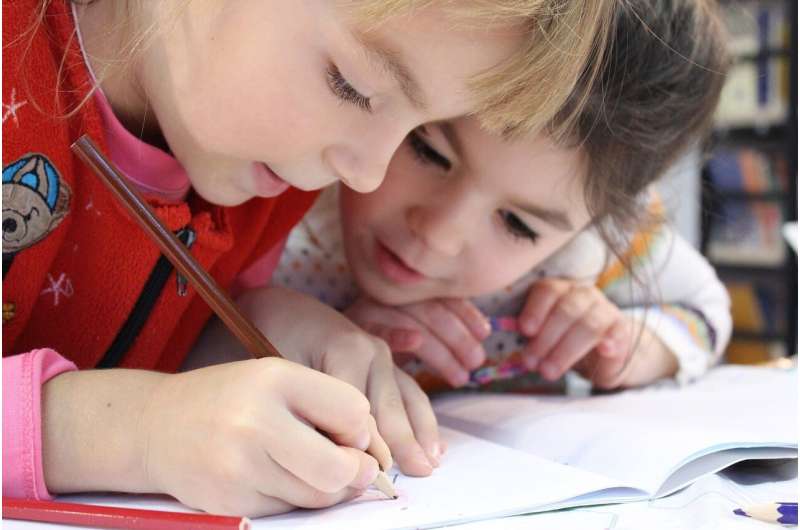Credit: CC0 Public Domain
A study published today in Educational Researcher, a peer-reviewed journal of the American Educational Research Association, provides preliminary projections of the impact of COVID-19-related school closures in spring 2020 on student learning. The study authors found that compared to a typical year, students likely did not gain as much academically during the truncated 2019-20 school year and likely lost more of those gains due to extended time out of school.
Using a model that assumed that school closures functioned as an extended summer break, the authors estimated that returning students likely started school this fall with approximately 63 percent to 68 percent of the typical annual learning gains in reading and 37 percent to 50 percent of the typical annual learning gains in math. However, they projected that losing ground during the school closures was not universal, with the top third of students potentially making gains in reading.
The projections imply that educators and policymakers will need to address that many students are substantially behind academically as a result of extended school closures, particularly if many schools remain disrupted throughout periods of the 2020-21 school year.
"It will be important to identify students who are struggling and fallen behind academically and provide those students with extra supports, such as high dosage tutoring and additional structural time," said study coauthor Megan Kuhfeld, senior research scientist at NWEA.
"Inequalities that have existed in our education system prior to COVID are getting worse at the same time school districts are facing massive budget shortages," added Kuhfeld. "We need additional investments from the federal government to prevent looming school budget cuts."
More information: Megan Kuhfeld et al, Projecting the Potential Impact of COVID-19 School Closures on Academic Achievement, Educational Researcher (2020). DOI: 10.3102/0013189X20965918
Provided by American Educational Research Association






















